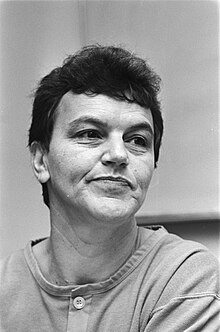
Brother Dr. René P. E. Stockman, F.C. is the Superior General of the Congregation of the Brothers of Charity since 2000. He is a Belgian specialist in psychiatric caregiving.
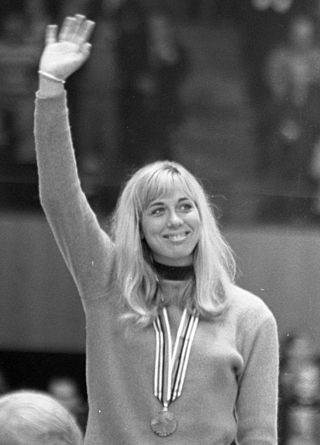
Carolina ("Carry") Cornelia Catharina Geijssen is a former speed skater from the Netherlands.
Willem Maurits Roggeman is a Belgian poet, novelist and art critic.

Johanna Elisabeth "Joke" Smit was a well-known Dutch feminist and politician in the 1970s.

Wilhelmina Drucker was a Dutch politician and writer. One of the first Dutch feminists, she was also known under her pseudonyms Gipsy, Gitano, and E. Prezcier.

Wim Hora Adema was a Dutch author of children's literature and a feminist, notable for being the co-founder of Opzij, founded in 1972 as a radical feminist monthly magazine. She was one of the best-known women of the Dutch second wave of feminism.

Weesperplein is an underground metro station in the city centre of Amsterdam, Netherlands. Served by lines 51, 53, and 54 of the Amsterdam Metro, it was constructed using caissons with a length and width of 40 metres (130 ft). It has two floors: the upper floor, with a station hall and stores, and the lower floor, containing the tracks. Construction started in August 1970, and the first test rides passed through in January 1977. Extensive tests were carried out in September that year before it opened on 16 October.

Geertruida Wijsmuller-Meijer was a Dutch resistance fighter who brought Jewish children and adults into safety before and during the Second World War. Together with other people involved in the pre-war Kindertransport, she saved the lives of more than 10,000 Jewish children, fleeing anti-Semitism. She was honored as Righteous among the Nations by Yad Vashem. After the war she served on the Amsterdam city council.
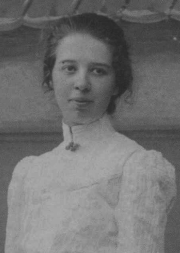
Clara Gertrud Wichmann was a German–Dutch lawyer and anarchist feminist activist, who became a leading advocate of criminal justice reform and prison abolition in the Netherlands.

Astrid Heligonda Roemer is a Surinamese-Dutch writer and teacher. The Dutch-language author has published novels, drama and poetry, and in December 2015 was announced as the winner of the P. C. Hooft Award, considered the most important literary prize in the Netherlands and Belgium, which was presented in May 2016.
Angèle Georgette Ghislaine Manteau, born in Dinant on 24 January 1911 and died in Aalst on 20 April 2008, was a Belgian publisher. According to the Royal Flemish Academy of Belgium for Science and the Arts, which presented her with an award in 2003, she was "the main Flemish literary editor of the twentieth century" and her publishing house has "undoubtedly left its mark on the history of Flemish literature".

Jacques Paul Delprat was a Dutch bobsledder. He competed in the four-man event at the 1928 Winter Olympics.

Emilie Maria Claeys was a Belgian feminist and socialist.
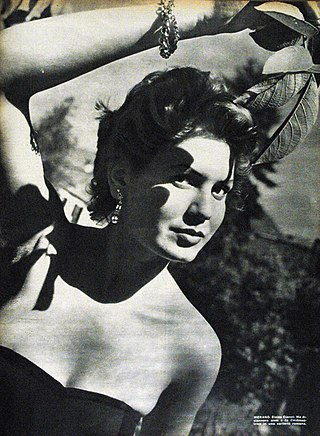
Miss Europe 1953 was the 16th edition of the Miss Europe pageant, held in Istanbul, Turkey on 9 September 1953. At the end of the event, Günseli Başar of Turkey crowned Eloisa Cianni of Italy as Miss Europe 1953.
Joyce Outshoorn is a professor emeritus of Leiden University. She served as head of the Women's Studies Department from 1987 to 1999. Simultaneously between 1992 and 2000, she was chair of the Netherlands Research School of Women's Studies. From 2007 to 2011, she served on the Steering Committee of the Feminism and Citizenship project (FEMCIT) funded the European Union. She was honored with the Career Achievement Award for 2009 by the European Consortium for Political Research.
Joke Swiebel is a Dutch political scientist, and a former policy maker, politician and activist. Since the 1960s, she has been involved with the feminist and LGBT movements. She served as first chair of the Federation of Student Working Groups on Homosexuality and on the board of the COC Nederland while a student. In the former capacity, she was one of the organizers of the first LGB demonstration in the Netherlands — and probably all of Europe — which was held on 21 January 1969. It was a protest against a discriminatory provision in the Criminal Code, introduced in 1911, that set a significantly higher age of consent for homosexual than for heterosexual contact.After earning her master's degree in 1972 from the University of Amsterdam, she led the political science library at that institution until 1977. She was involved in the creation of the women's studies program at the university and worked to coordinate between activist groups to ensure that neither gender or sexual orientation were the basis for discriminatory policies.
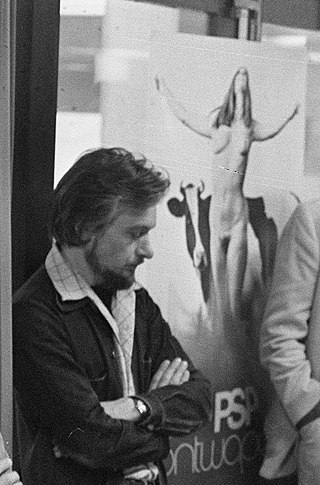
Saskia Holleman was a Dutch actress, lawyer and model. She became widely known in the Netherlands when a picture in which she was naked in a meadow was used by the left-wing, pacifist political party Pacifist Socialist Party for its electoral campaign during the 1971 Dutch general election. Holleman trained as a lawyer in the 1970s and she specialised in petty crime for law firms and later as an independent.
Peter Dick Nicolaï is a Dutch lawyer and politician of the Party for the Animals. He has served as a member of the Senate since 11 June 2019.

Elizabeth Frederika van den Ban, known as Elze, was a Dutch urban planner and chief engineer of the Rijkswaterstaat at Zuiderzee Works where she introduced curvatures rather than straight lines into the urban planning process of polders and dikes. Van den Ban was the first woman from the Netherlands to graduate as a civil engineer in Delft, where she worked as a civil engineer.
Donalda Jeanine "Donny" Meertens is a Dutch academic, Colombian policy and development advisor, and a co-founder of the Programa de Estudios de Género, Mujer y Desarrollo at the National University of Colombia. Educated in the Netherlands, Meertens studied land rights in Colombia becoming interested in how the exploitation of rural peasants increased violence in the country. She moved to Colombia to assist with development programs in the early 1990s and has held a number of posts with United Nations agencies. She also served as the research coordinator for the Comisión Nacional de Reparación y Reconciliación. She has worked as a professor at the National University of Colombia and the Pontificia Universidad Javeriana. Her work has centered on rural displacement, gender inequalities, and the links between violence and the land.
